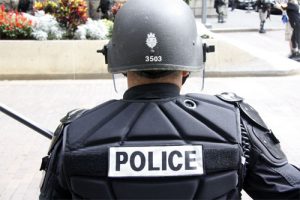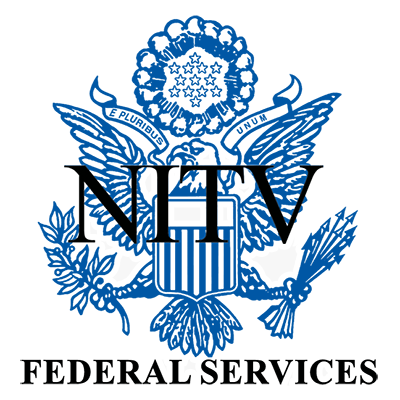
Police in riot gear in a show of force during the G20 Summit in Pittsburgh Sept. 25. Image Source: Flickr CC user G20 Voice.
I’ve worked with a lot of police officers over the years, and I’ve come to appreciate the “all for one and one for all” loyalty the men and women in blue hold dear. I’ve seen how they celebrate each other’s lives outside of work when someone has a baby or gets married and how officers will spend days planning a party for their retiring officer. Once, hundreds of officers from other districts came out for the funeral of an officer’s K-9 partner. This kind of emotional support makes police culture similar to a family dynamic—we all stand by our own.
But commitment to transparency means providing resources for law enforcement personnel to come forward with the truth if they observe ethical misconduct within their team. Police services that are committed to transformative practices are providing avenues for their members to share concerns or report issues through Whistleblower programs like anonymous telephone lines, but they are also using investigative tools such as the Computer Voice Stress Analyzer (CVSA®) to assess truthfulness within their own departments.
The Blue Wall of Silence
There are those who say the blue wall of silence is a myth, but most police centric organizations are willing to face this vulnerability in the policing community and work towards better hiring, training, and open dialogue to improve the quality of our police agencies for everyone involved.
With the advent of the Internet, social media, police cruiser or body cameras, and other technological innovations, police behavior is more in the public eye than ever. This means there is an even greater demand for individuals and organizations to take ownership of any police officer’s misdeeds or mistakes. The wall is tumbling, and with it there is a transformative culture taking place in police agencies.
As in other hierarchal structures, police culture is defined by those at the top. Leonard Wong, a research professor in the Strategic Studies Institute at the U.S. Army War College and Stephen J. Gerras, a Professor of Behavioral Sciences at the U.S. Army War College, prepared a paper titled Lying to Ourselves: Dishonesty in The Army Profession in February 2015. The researchers focused on what they have coined “ethical fading” and state that “‘white’ lies and ‘innocent’ mistruths have become so commonplace in the U.S. Army that there is often no ethical angst, no deep soul-searching, and no righteous outrage when examples of routine dishonesty are encountered.”
Systemic dishonesty is not unique to the military or law enforcement, but it is a good example of how a culture of deception can develop over time in an organization. Many of these “white lies” are to protect their own, but deception also occurs in cases of “noble cause corruption” where an individual or group lies to achieve a positive outcome. This might include mistruths in reporting, lying in court, or other forms of deception to reach an end goal. When this is the case, officers familiar with truth verification systems such as the polygraph—which has easily researchable countermeasures—would be better equipped than most witnesses or suspects to trick the technology and hide their deception.
Moving the Culture Forward to One of Transparency and Truthfulness
Wong and Gerras distill the solution to institutionalized deception down to three actions: Acknowledge the problem, exercise restraint, and lead truthfully. We, and many others in the law enforcement community, would like to add a fourth solution: better investigative practices to uncover deception and complete transparency regarding the outcome of those investigations. With over 2,000 law enforcement agencies already using CVSA to assess truth when interviewing witnesses and suspects, it’s worth examining the use of this technology to benefit police culture in general.
Improving the future police culture starts with hiring the best people for your agency. The CVSA is being utilized by many police agencies to vet new recruits and ensure “bad apples” are discovered. Most police services screen applicants through a series of interviews, psychological tests, and background checks. They also conduct truth assessment examinations on applicants as part of the screening process. The CVSA is replacing the polygraph as the instrument of choice in many cases because it is scientifically proven to have a 95 percent accuracy rate, and busy police services appreciate that the examination itself takes only 45 minutes compared to approximately three hours for a polygraph.
In cases where there are suspicions of police corruption or ethical breaches, a CVSA truth verification examination can help investigators reach behind that blue wall of silence. Faced with interviewing members of a service who have each other’s back, Internal Affairs investigators have one of the most difficult roles in policing. It’s sometimes difficult for them to uncover the truth, and asking members to take a polygraph is usually met with a less than positive reception. The National Internal Affairs Investigators Association is looking at more innovative processes, such as CVSA, which provide better results and put less stress on the individual and organization. In fact, they already have members who are Certified CVSA Analysts. Recently, Cliff Payne, the Senior CVSA Examiner for the Atlanta Police Department, was asked to present on behalf of NITV Federal Services at their annual conference.
As part of an overall movement to enhance best practices in policing, the CVSA can become a tool that is more widely used as an integral part of a new paradigm in police culture. It’s incumbent on all law enforcement and their private sector partners to work together to improve services to the communities across America with stronger, more ethical police agencies. That starts with embracing change and considering advanced technology such as the CVSA as a resource for raising the benchmark in your law enforcement organization.
Please reach out to us at NITV Federal Services to learn more about our CVSA systems and training programs.
